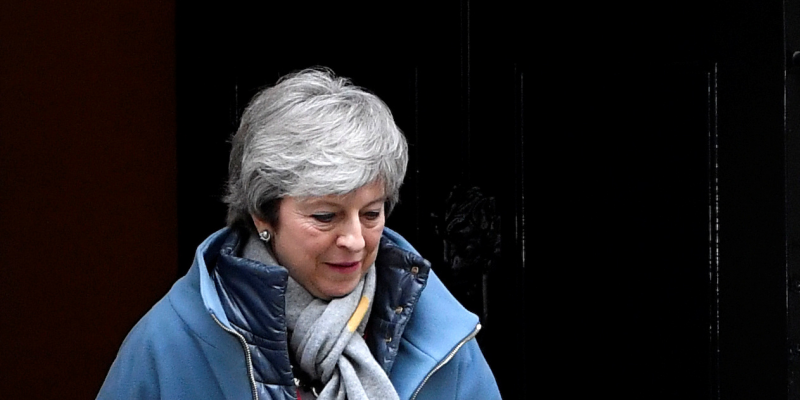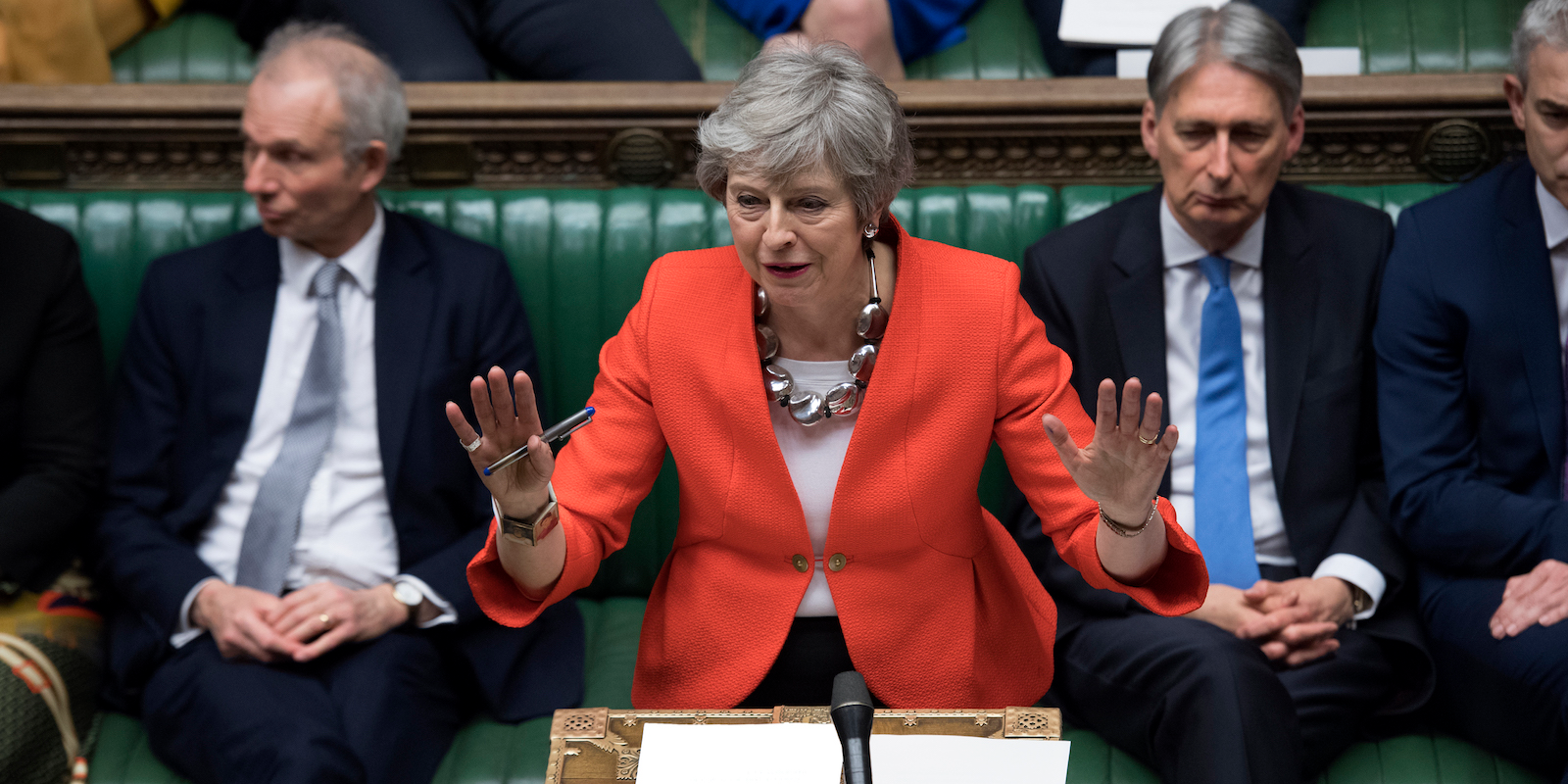- Prime Minister Theresa May’s Brexit deal was defeated in a House of Commons vote by 391 to 242.
- It is the second time that her agreement with the European Union has been rejected comprehensively by MPs.
- The prime minister’s defeat comes after the attorney general advised that her deal leaves the United Kingdom at risk of being held within the Northern Ireland backstop indefinitely.
- May will now hold votes on leaving the EU without a deal or delaying Brexit.
- Her support among MPs drains away as speculation of a general election grows.
LONDON – Prime Minister Theresa May has suffered a landslide defeat on her Brexit deal for a second time after Members of Parliament rejected her revised agreement with the European Union.
The House of Commons voted by 391 to 242 to reject May’s deal and the new “legally binding” assurances she had negotiated with the EU.
The prime minister’s deal was rejected by a huge majority of 149 votes, with just three Labour MPs backing the government.
The result means that May will be forced to bring forward a series of votes, in which MPs will be asked to back either leaving the EU without a deal or seeking to delay Brexit by extending the Article 50 withdrawal process.
Following the result on Tuesday evening, May told MPs that she would allow Conservative MPs to have a free vote on no-deal on Wednesday, meaning they will not be expected to vote in a certain way.
May warned MPs that voting to delay Brexit was not a solution to the growing crisis facing the UK, however.
"Let me be clear, voting against leaving without a deal and for an extension does not solve the problem we face," May told MPs after the result of the vote was announced.
"The EU will want to know what use we mean to make of [an extension].
"This House will have to answer that question. Does it wish to revoke Article 50? Does it want to hold a second referendum? Or does it want to leave with a deal but not this deal?
"These are unenviable choices, but thanks to the decision the House has made this evening they must now be faced."
Responding to the result, Labour leader Jeremy Corbyn said the Brexit deal on the table "is clearly dead and doesn't have the support of this House."
He added: "The Prime Minister has run down the clock and the clock has been run out on her. It's time that we have a General Election and the people can choose who their government should be."
The EU said it would consider any request for an extension.
"Should there be a UK reasoned request for an extension, the EU27 will consider it and decide by unanimity," a spokesman for European Council President Donald Tusk said.
However, they added that the EU had done "all that is possible to reach an agreement" and that "the solution can be found only in London.
This was reiterated by the EU's chief Brexit negotiator, Michel Barnier, who tweeted: "The EU has done everything it can to help get the Withdrawal Agreement over the line.
"The impasse can only be solved in the #UK. Our 'no-deal' preparations are now more important than ever before."
Explained: What happens now Theresa May's Brexit deal has been rejected again?
The prime minister's hopes of winning over opponents of the deal were dashed on Tuesday morning after the attorney general refused to change his previous legal advice to MPs.
Geoffrey Cox told MPs that the risk of the UK being kept indefinitely within the controversial Northern Ireland backstop after Brexit remained "unchanged" despite the assurances received by the prime minister.
May traveled to Strasbourg, France, on Monday, where she secured new assurances on the backstop from EU leaders.
The attorney general's advice fell short of what critics had been demanding, however.
The Democratic Unionist Party, which props up May's minority government, opposed the deal on Tuesday evening, along with large numbers of pro-Brexit Conservative MPs.
May, who opened the debate on the deal on Tuesday afternoon, struggled to win over Conservative MPs, most of whom were absent from the green benches behind her, with her voice failing at several points throughout her address.
General election rumours

The defeat comes as rumours of an imminent general election spread in Westminster.
Charles Walker, who is the deputy chairman of the 1922 group of backbench Conservative MPs, told the BBC that "there will have to be a general election."
He added: "If we can't decide tonight to leave the EU under the terms that the prime minister has negotiated, then I can't see really how this government can continue in office.
"As sure as night follows day, there will be a general election within a matter of days or weeks."
May's spokesman dismissed rumours that the government were preparing to hold an election.
"We are not preparing for a general election. We do not want one," he said.
